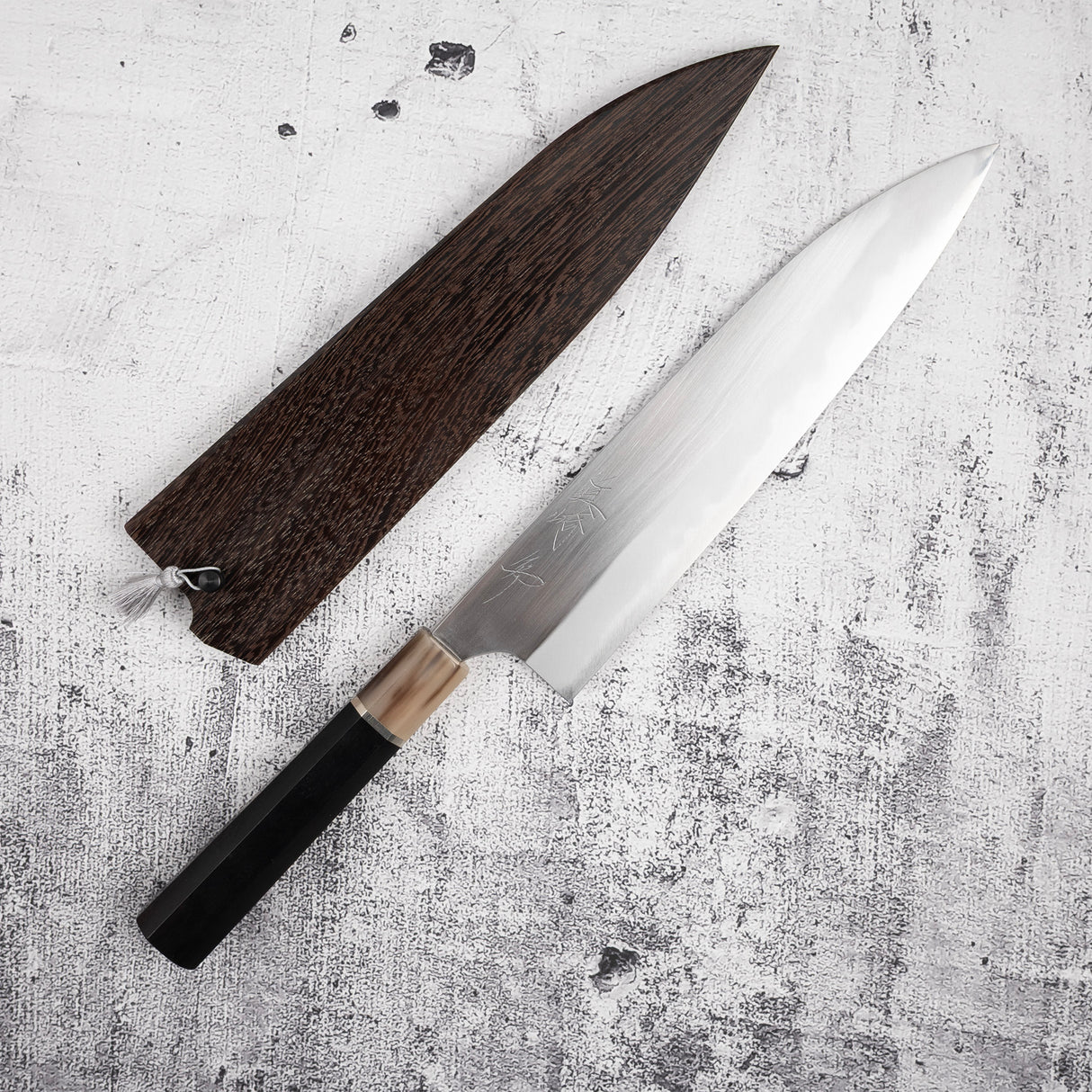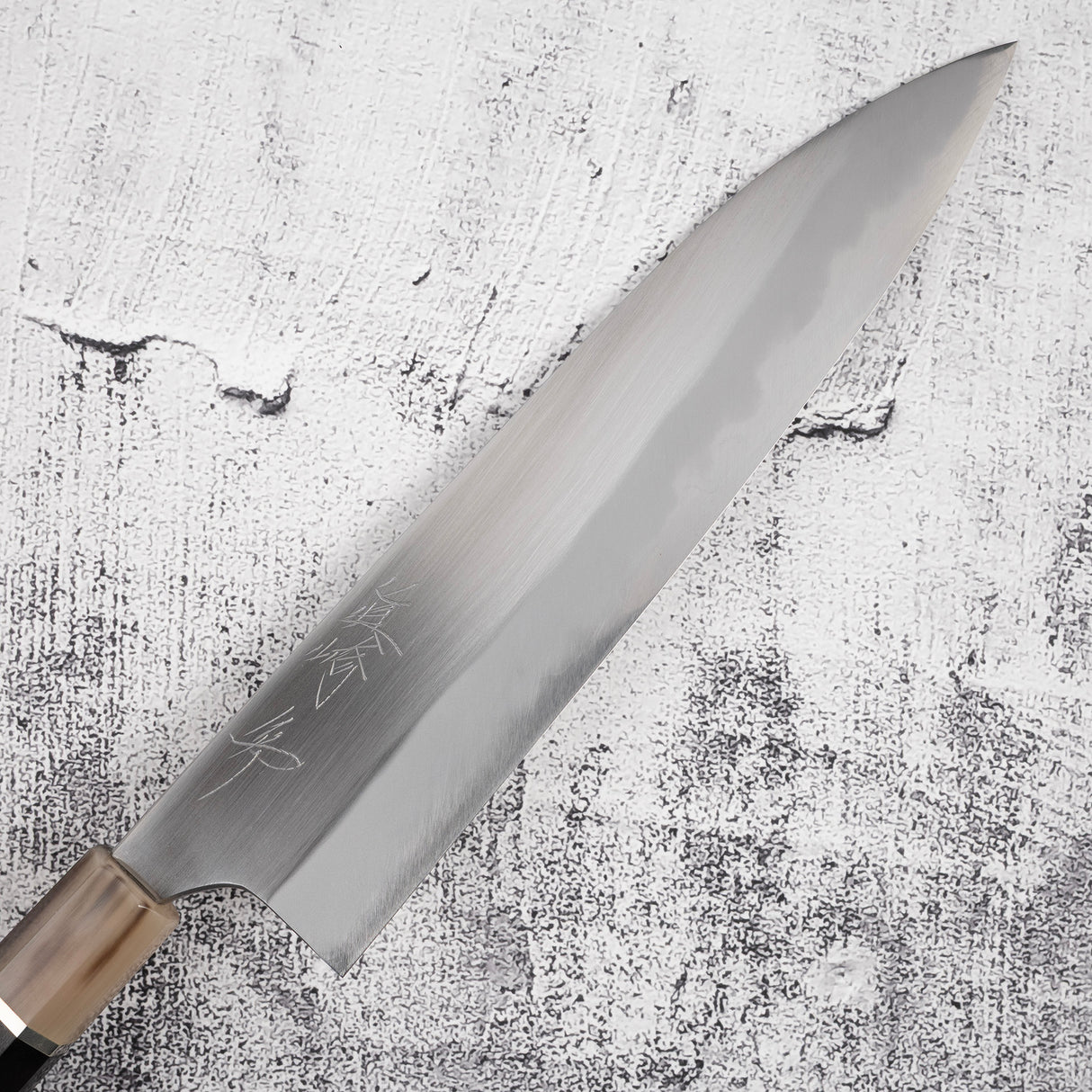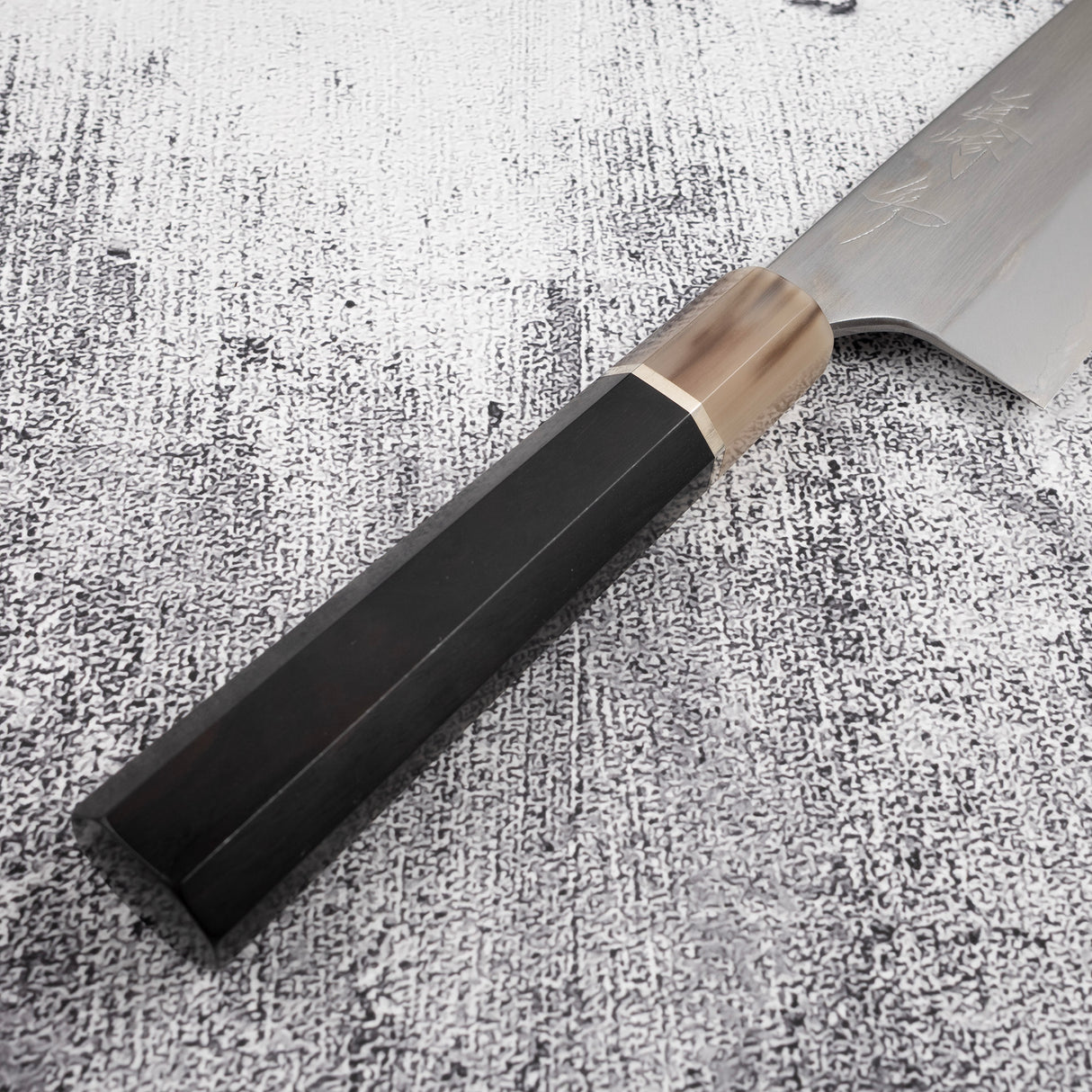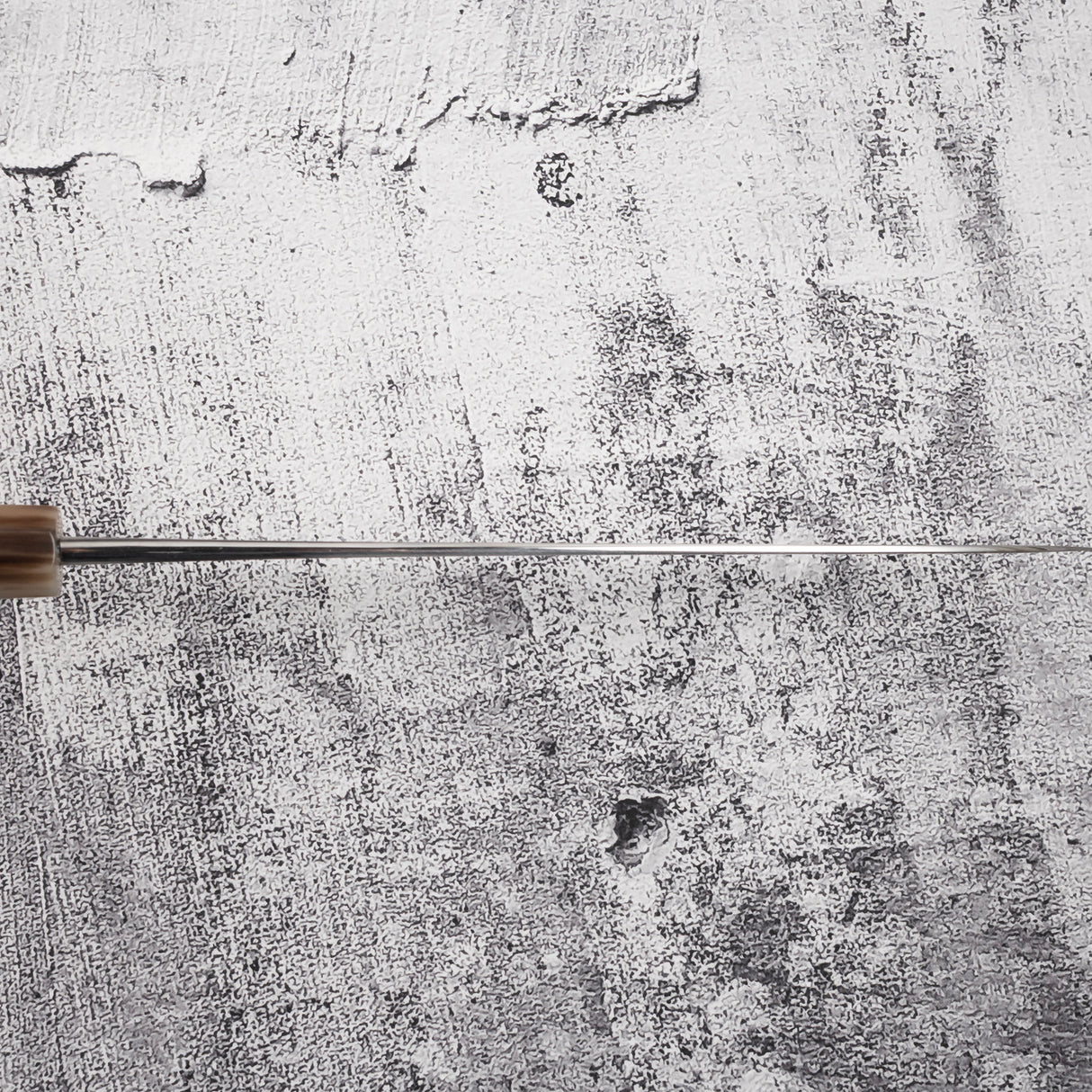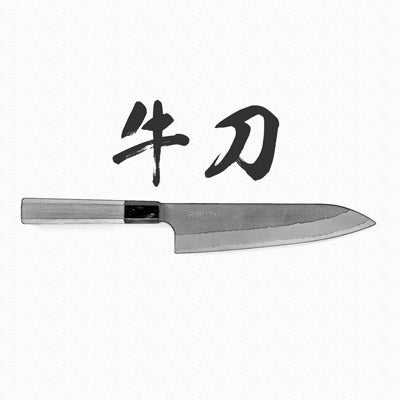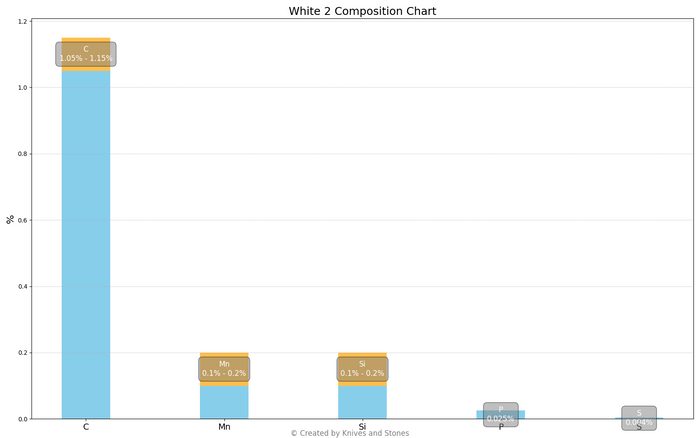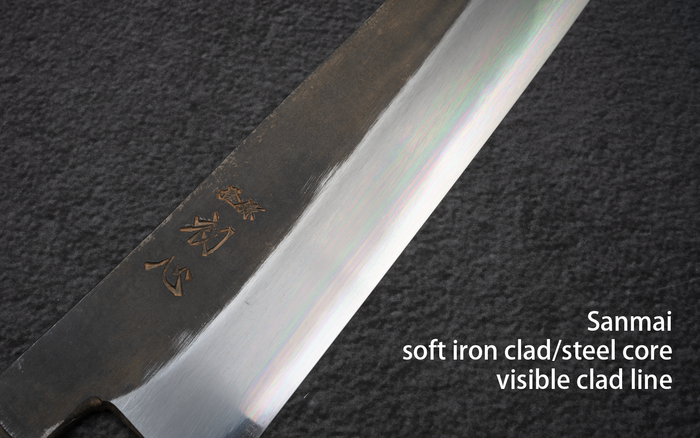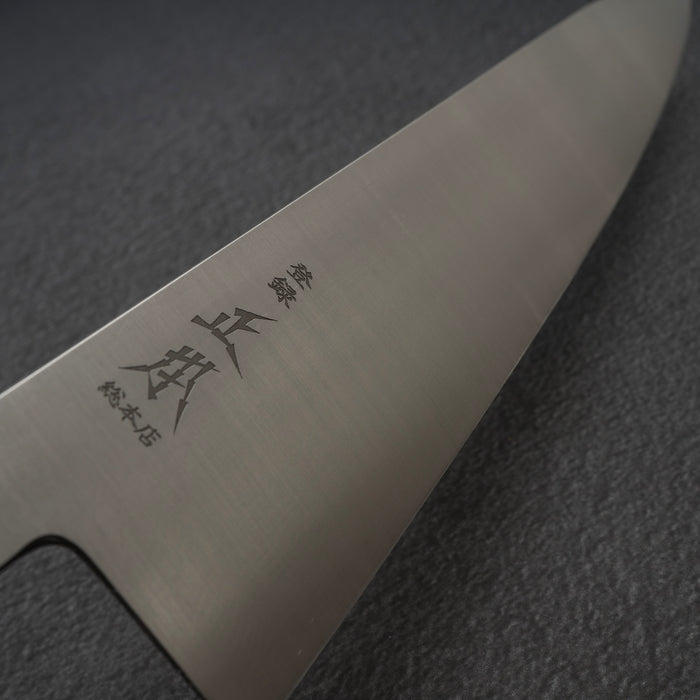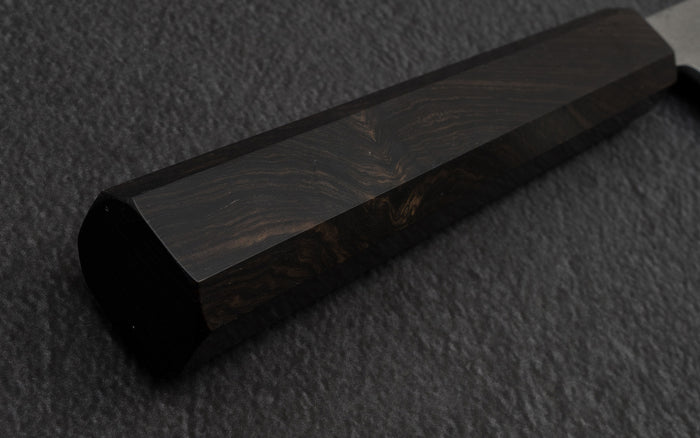Mazaki | SKU:
MAZA_W2HONDM_GY24_Y24
EOFY2025 SPECIAL: Mazaki White 2 Hon-Sanmai Gyuto 240mm with Saya
Regular price
$799.95
Unit price
/
Unavailable
EOFY2025 SPECIAL: Mazaki White 2 Hon-Sanmai Gyuto 240mm with Saya is backordered and will ship as soon as it is back in stock.
IMPORTANT: Carbon steel knives can rust or patina quickly if not cared for properly. They require regular cleaning, drying, and oiling. If you are unfamiliar with carbon steel maintenance, we recommend choosing a stainless steel option instead.
Couldn't load pickup availability
Detailed Specifications
| Line | Mazaki White 2 Migaki |
| Profile | Gyuto / Chefs Knife |
| Bevel Type | Double Bevel |
| Weight | 283 g | 10.0 oz |
| Edge Length | 250 mm | 9 27/32″ |
| Heel Height | 55 mm | 2 11/64″ |
| Width @ Spine | 5.5 mm | 7/32″ |
| Width @ Mid | 2.3 mm | 3/32″ |
| Width @ 1cm from Tip | 1.0 mm | 3/64″ |
| Steel | White 2 / Shirogami #2 | Carbon |
| Blade Construction | Sanmai - Soft Iron Clad |
| Hardness (HRC) | 60 - 64 |
| Surface Finish | Migaki |
| Handle | Octagonal Ebony |
| Region | Sanjo |
| Best for |
|

| Pros | Cons |
|
|
|
Care Instruction
- Don't cut hard things! Japanese knives are brittle so bone hacking is a NO NO!
- Wash with neutral detergent after use, and wipe dry;
- Please don't wash knife with dishwasher, it will damage the wood handle;
- Be careful not to leave the knife close to a heat source for a long time;
- It is a lot more dangerous to cut with a blunt knife than a sharp knife!
- It is best to sharpen a Japanese knife regularly on a waterstone.
- Oil the (carbon) knife if storing for an extended period of time to prevent rust.

